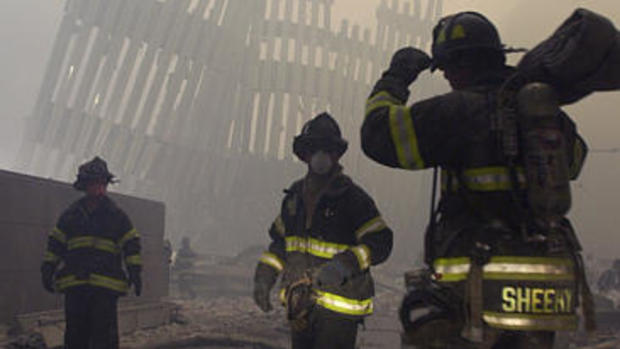Emotional farewell for 9/11 cop stricken with cancer
NEW YORK-- Family, friends and colleagues bid an emotional farewell Sunday to an NYPD lieutenant who died of cancer 14 years after working at Ground Zero.
Lt. Marci Simms, 51, died of lung cancer Thursday at her Long Island home, becoming one of an estimated 1,700 people who have died as a result of their work at the World Trade Center site.
Simms' family is heartbroken and call her a true hero, CBS New York reports.
In a Stony Brook University School of Journalism video last year, Simms talked about responding to 9/11 and the conditions she faced.
"It was smoky," she said. "You felt like it was just burning your throat."
She spent four months at the site doing rescue, recovery and cleanup work as a rookie officer. Her health then deteriorated as she moved up the ranks.
"I had a back ache," Simms said. "I thought I did something wrong working around the house. But I noticed a lump on my stomach. Even my doctor thought it was nothing but a cyst."
That cyst turned out to be lung cancer, which spread.
Simms' sister spoke with CBS New York on the phone about her passion.
"She was an amazing woman," Susan Fosco said. "She turned around when she was a little girl and said she wanted to be a cop, and she was. She followed her dreams."
Fosco said Simms will be remembered for her love for life.
"She had an amazing personality," she said. "When she walked in the room, the room lit up."
SImms and her husband, Keith, visited the 9/11 memorial in Lake Ronkonkoma last year.
Her friend and 9/11 advocate John Feal said: "She also came to this park knowing that sadly one day she would be on this wall. And we humbly will honor Marcy next year when we do the reading of the names."
Feal now speaks out about medical coverage for those in Simms' position. Her costs were taken care of by the James Zadroga 9/11 Health Compensation Act, but Congress failed to renew the program last month. It is set to expire in October 2016.
"What about those whose families are being torn apart by 9/11-related illnesses yet they have a cloud of uncertainty because the nation's leaders can't come together to pass a bipartisan bill?" Feal said.
Advocates are pushing for Congress to revisit the issue.
